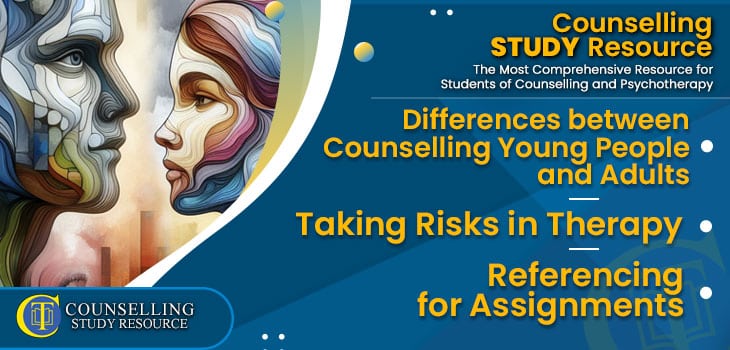See Counselling Skills Used in Real Sessions by Qualified Therapist
Real Sessions – Real Presentations – Real Skills
Gain the competence and confidence to use counselling techniques effectively!

In Episode 299 of the Counselling Tutor Podcast, your hosts Rory Lees-Oakes and Ken Kelly are back with this week’s three topics:
Differences between Counselling Young People and Adults
Some students might already know that they want to work with children and young people.
In this section, Rory and Ken discuss the differences between counselling young people and adults, and why practicing with younger clients requires specialist training:

Real Sessions – Real Presentations – Real Skills
Gain the competence and confidence to use counselling techniques effectively!
In this week’s ‘Practice Matters’, Rory speaks with Sally-Anne Armitage about taking risks in therapy.
The key points of this discussion include:

On-demand access to a rich lecture library covering theory, skills, and professional development for counselling students—Mapped to the UK awarding body criteria
“The Student Library has been BRILLIANT, I can’t recommend it enough!
It has been a lifeline in helping me prepare for practice and my first clients. If you’re considering it, go-for-it, it’s absolutely worth it!”
Kelly – Graduated and now in practice.
During your training, you’ll need to complete many assignments. In this section, Rory and Ken discuss how we can make referencing easier for ourselves, and its purpose:
Differences between Counselling Young People and Adults

Get on-demand Certified CPD that is implementable in your practice
